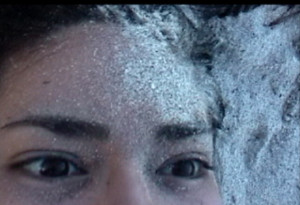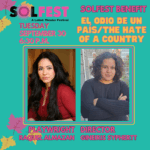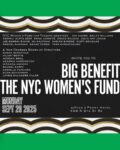If in Theatre of the Oppressed, Augusto Boal sought to de-mechanize the body then to de-colonialize must also require the participation of the body. In order to release and re condition the body to a prior state, what state? – an organic, pure, original or unconditioned state. The influences of Butoh dance methodologies also play a large part of how I physicalize the world in my plays. Language is not sufficient enough to de-colonialize when using the English and Spanish language, these are not the original voices of the indigenous, and if we are limited to the languages of those that enacted imperialistic dominance, language being a large tool of imperialistic control, than we must also include the body in attempts to return to another influence. The body must be in relationship to the use of colonial languages imposed on the altered indigenous body, psyche and lineage. To use English and Spanish is a conscious choice of compromise, the reality of the post-colonial results, the limited makeup of our modern state and access to our cultural knowledge and disconnection. The bi-lingual aspect in my work is a struggle to reverse the colonial gaze, and use verbal language as a weapon to subvert the assumptions of power that English speakers have in speaking the language that dominants the world.
One concept in Butoh dance, is that choreography is imperialism, if that is so, than what is the process of creating a instinctual space where the body and spirit can generate and create impulse for movement “dance”. Only through the ritualistic space of invitation –not invasion of the space, can the body move in a natural state. We must question the very logic of movement itself in it’s current form, in our current body that carries the trauma and conditioning of our ancestors and world history.
The body itself holding memory and access portals to cultural history, lost verbal language that transforms into a physical language. A language of movement, that being is doing, if the body can “be” in the theatrical space, it can do what language can not do. To de-colonialize is to explore the concept of being in relationship to the spirit of our ancestors. This is linked to our ancestors inviting us into the theatrical space to honor the spirits for whom we perform for. Before a physical audiences enters the performance space, the process and beginning intentions are offered to our celestial audiences whom we seek to heal. Our work must first live in the spiritual realm, our ancestors will guide us towards transforming the common physical space into a metaphysical space with multi-dimensional capabilities. They are the celestial ensemble.
To create a new relationship with our bodies and the space itself, with time itself, we can conjure historical blood lines with an invitation to enter the playing space in a new way. We must not mirror dominant power structures by invading theatre spaces, we must bring nature, the body joined in earth and sky into our modern stages. The earth remembers, and ancestors can guide us on a celestial timeline into the past pre-colonial dimensions. We can express freedom there and take this into the future movements of being in the space with text, movement, and one another. Creating from a “non-center of power” hierarchy that allows us to manifest away from post-colonial structures of working in group dynamics, narratives, perspectives and product driven concepts. If our work is to honor these themes, the dead, and the tortured living, we must seek their permission and guidance towards a ritualistic theatre.




